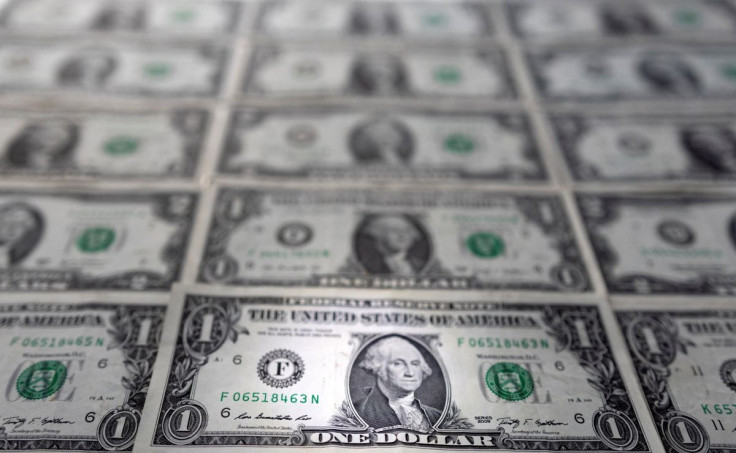Euro Set For Biggest Weekly Rise In 6 Weeks

The euro weakened on Friday but was set for its biggest weekly gains in six weeks as traders breathed a sigh of relief after Russia avoided default on dollar-denominated debt and markets weighed the broader impact of the start of the U.S. rate hike cycle.
The single currency drifted lower towards the $1.10 levels though the dollar's broad losses and optimistic comments by European policymakers supported the euro. Dutch central bank chief Klaas Knot said he anticipates only one rate hike this year.
A rally on Thursday across global markets including stocks, bonds, credit and commodities showed investors on the sidelines remain eager to buy beaten down assets at the slightest signs of an end to the war in Ukraine.
"This week has shown the market appetite to start incorporating risk back into portfolios now the geopolitical backdrop has stabilised somewhat," said Simon Harvey, head of FX analysis at Monex Europe.
The single currency declined 0.5% at $1.1037 on Friday but was up 1.52% for the week, on track for its biggest weekly rise since the first week of February when European Central Bank President Christine Lagarde signalled for the first time that interest rates will rise in the eurozone in 2022.
The dollar index paused for breath on Friday, recovering 0.4% to 98.36 after declining every other day this week, and was set for a 1% loss over the period. It slipped to 97.724 on Thursday for the first time since March 10.
"The dollar seems to be peaking with the market already pricing Fed hikes to a large extent, so the key going forward is going to be inflation: if it keeps surprising to the upside, then the question will be whether the Fed becomes even more hawkish," said Shinichiro Kadota, senior FX strategist at Barclays in Tokyo.
While money markets still expect a cumulative 160 bps of rate increases through the rest of the year, the narrowing gap between short- and medium-maturity U.S. Treasury yields raised concerns the economic momentum is slowing.
The Japanese yen remained near a six-year low after the Bank of Japan left its ultra-accommodative policy settings unchanged on Friday, as widely expected, leaving it an outlier among developed-world central banks which are exiting coronavirus pandemic emergency measures.
Though traders stayed optimistic for an end to the war in Ukraine as talks continued between Moscow and Kyiv, although progress on Friday was elusive with Russia firing missiles at an airport near the city of Lviv.
Cryptocurrencies were broadly quiet with bitcoin and ether down 1.5% and 1% respectively.
© Copyright Thomson Reuters 2024. All rights reserved.




















